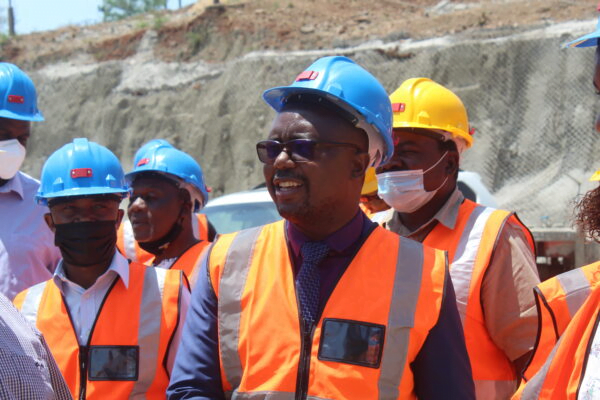THE Parliamentary Portfolio Committee on Mines and Mining Development has recommended the introduction of electronic vouchers for small-scale miners to enhance their security after receiving payment for gold deliveries.
Of late, small-scale miners across the country have become targets of robbers after receiving payment from Fidelity Printers and Refiners (FPR) at milling centres where the country’s sole gold buyer would be buying the yellow metal.
As part of boosting gold production in the country, FPR has established gold buying units milling centres across all the mining regions in the country.
In an interview yesterday following their recent tour of gold mines and gold mining communities in the southern region of the country, Mines and Mining Development Portfolio Committee chairperson Edmund Mkaratigwa, who is also Zanu-PF legislator for Shurugwi South constituency, said: “We established that at some milling centres
particularly in Gwanda, many a time, the robbers would know when Fidelity has been to the site, when the people have been paid and they pounce on the unsuspecting miners who would have been paid for their gold deliveries.
“We also recommended that it will be good to probably introduce electronic vouchers so much that miners would ordinarily visit a bank at an opportune time only known to them, a bank of their choice unbeknown to the criminals or would-be criminals and en-cash their vouchers in hard cash to enhance security of their rewards.”
During their tour, the portfolio committee visited Bubi Milling Centre in Matabeleland North and milling centres in Gwanda, Matabeleland South.
Mkaratigwa said at the Bubi Gold Milling Centre it was established that among other challenges, the miners were faced with power challenges due to incessant power cuts by the Zesa.
“At Bubi Gold Milling Centre, there were some challenges with neighbouring milling centres who seemed to be actually getting more throughput from miners around the Bubi community as opposed to this establishment.
“We found that the challenge was to do with some operational teething problems as some equipment was not up to standard in terms of operation, maintenance and continuity in terms of guaranteed service to the miners.
“Our recommendations were that the miners around support their facility by ensuring that their product which they would have mined for processing at the milling centres and Fidelity should ensure that they pay timeously and also the issue to do with pricing is addressed so that its attractive to the miners,” he said.
Bubi Milling Centre is a joint venture project between the Zimbabwe Mining Development Corporation (ZMDC) and small-scale miners in Bubi district.
Towards the end of last year, ZMDC announced that it was pouring US$2,2 million into Bubi Milling Centre (Private) Limited to capacitate artisanal and small-scale miners with mining equipment and accessories.
The capacitation programme involves the installation of a Carbon-in-Pulp (CIP) plant at Bubi Milling Centre as well as equipping ZOO 7 and ZOO 9 small-scale mines with mining equipment and accessories such as hoist, generators and electricity transformers.
A CIP plant is an extraction technique for recovery of gold, which has been liberated into cyanide solution as part of the gold cyanidation process.
Vice-President Dr Constantino Chiwenga commissioned the Bubi Milling Centre in July 2018.
Under the Second Republic, the country targets to establish more gold service centres across all the mining regions as a strategy towards attaining the US$12 billion milestone by 2023 with the gold sub-sector expected to contribute US$4 billion.

